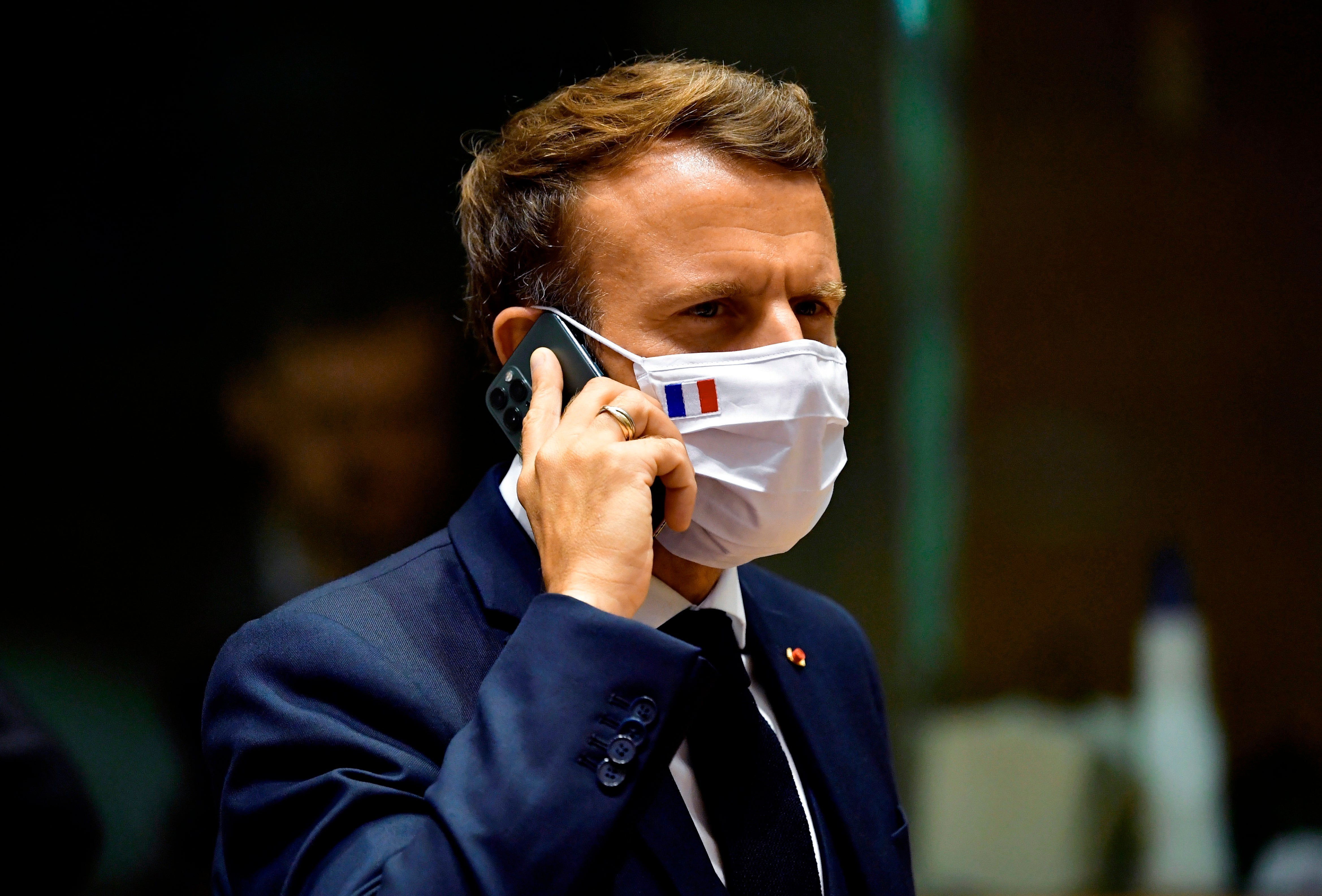Morocco denies using spyware to target French officials
Morocco’s government has denied reports that Moroccan authorities may have used malware made by Israel’s NSO Group to spy on the cellphones of France’s president and other public figures

Your support helps us to tell the story
From reproductive rights to climate change to Big Tech, The Independent is on the ground when the story is developing. Whether it's investigating the financials of Elon Musk's pro-Trump PAC or producing our latest documentary, 'The A Word', which shines a light on the American women fighting for reproductive rights, we know how important it is to parse out the facts from the messaging.
At such a critical moment in US history, we need reporters on the ground. Your donation allows us to keep sending journalists to speak to both sides of the story.
The Independent is trusted by Americans across the entire political spectrum. And unlike many other quality news outlets, we choose not to lock Americans out of our reporting and analysis with paywalls. We believe quality journalism should be available to everyone, paid for by those who can afford it.
Your support makes all the difference.Morocco’s government has denied reports that the country's security forces may have used spyware made by Israel’s NSO Group to eavesdrop on the cellphones of France’s president and other public figures.
The French prime minister said Wednesday that multiple investigations are under way into any eventual wrongdoing.
In a statement late Tuesday, the Moroccan government lashed out at a global media consortium investigating the suspected widespread use of NSO’s Pegasus spyware to target journalists, human rights activists and politicians in multiple countries. The government threatened unspecified legal action.
French newspaper Le Monde a member of the consortium, reported that the cellphones of President Emmanuel Macron and 15 then-members of the French government may have been among potential targets in 2019 of surveillance by Pegasus spyware on behalf of a Moroccan security agency.
French public broadcaster Radio France reported that the phones of Moroccan King Mohammed VI and members of his entourage were also among potential targets.
“The Kingdom of Morocco strongly condemns the persistent false, massive and malicious media campaign,” the statement said. The government said it “rejects these false and unfounded allegations, and challenges their peddlers ... to provide any tangible and material evidence in support of their surreal stories.”
The consortium identified the possible targets from a leaked list of more than 50,000 cellphone numbers obtained by the Paris-based journalism nonprofit Forbidden Stories and the human rights group Amnesty International
Consortium members said they were able to link more than 1,000 numbers on the list with individuals. Most were in Mexico and the Middle East.
While a phone number’s presence in the data does not mean an attempt was made to hack a device, the consortium said it believed the data indicated potential targets of NSO’s government clients.
Also on the list were phone numbers in Azerbaijan, Kazakhstan, Pakistan, Morocco and Rwanda, as well as ones for several Arab royal family members, heads of state and prime ministers, the consortium reported.
The Paris prosecutor's office is investigating alleged use of the spyware, and French experts have called for greater security for cell phones of prominent officials.
French Prime Minister Jean Castex said Wednesday that the president “ordered a series of investigations," but said it was too early to comment or announce any new security measures or other action without knowing “exactly what happened.”
NSO Group denied that it ever maintained “a list of potential, past or existing targets.” It called the Forbidden Stories report “full of wrong assumptions and uncorroborated theories.”
The source of the leak — and how it was authenticated -- was not disclosed.